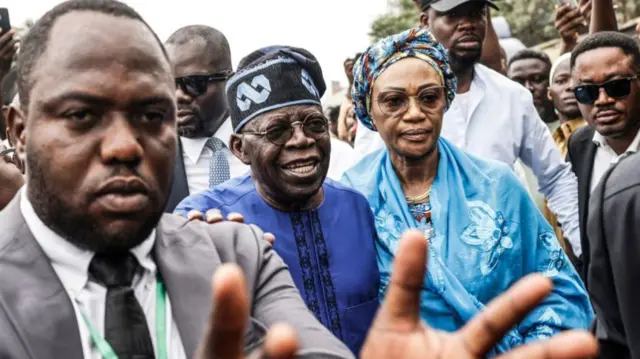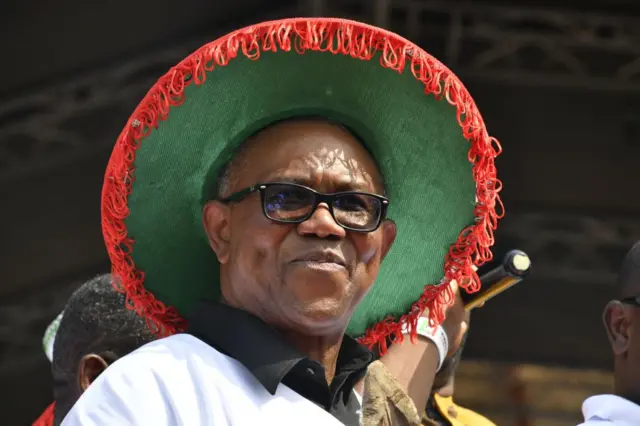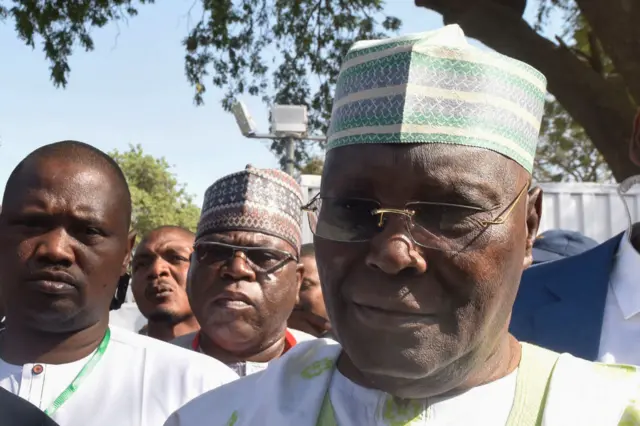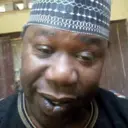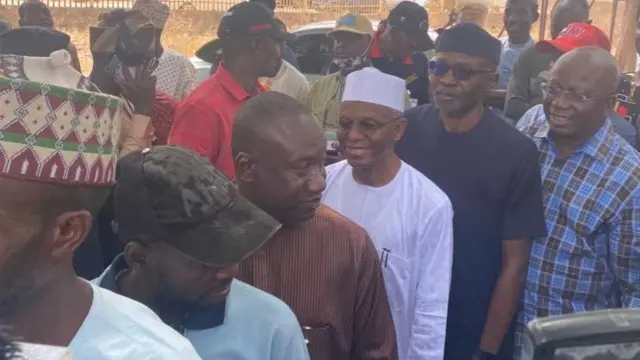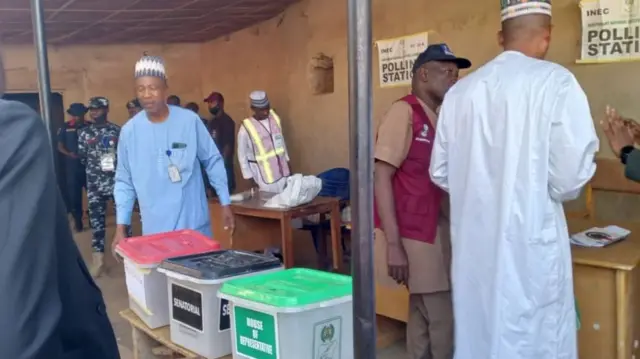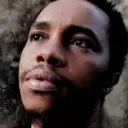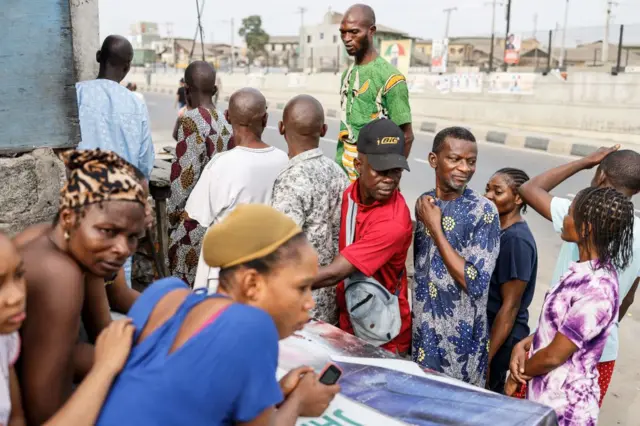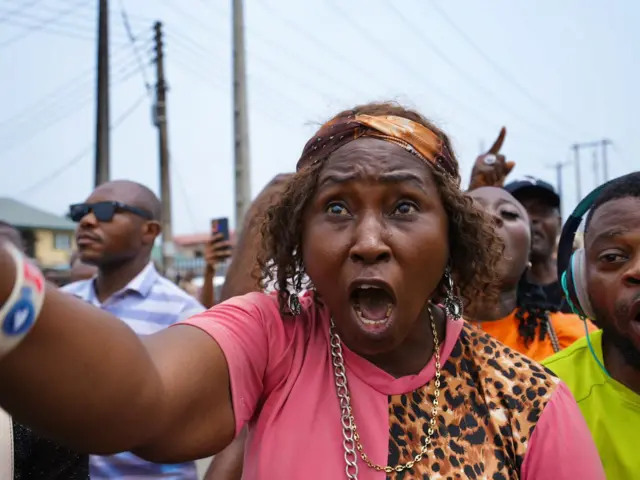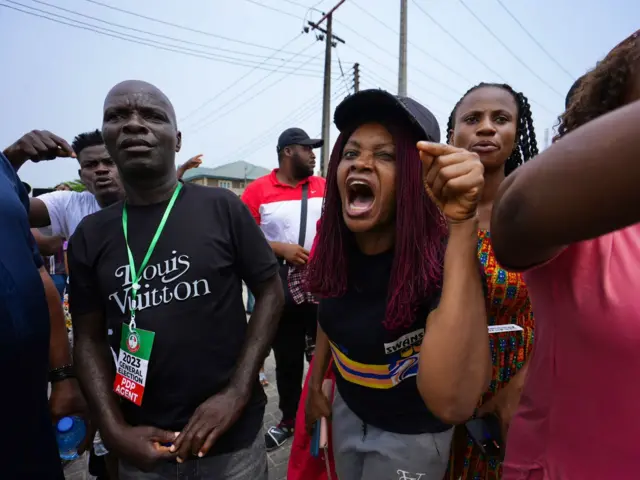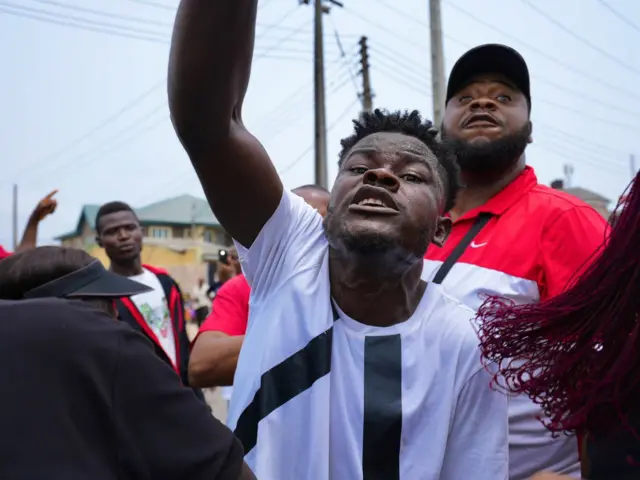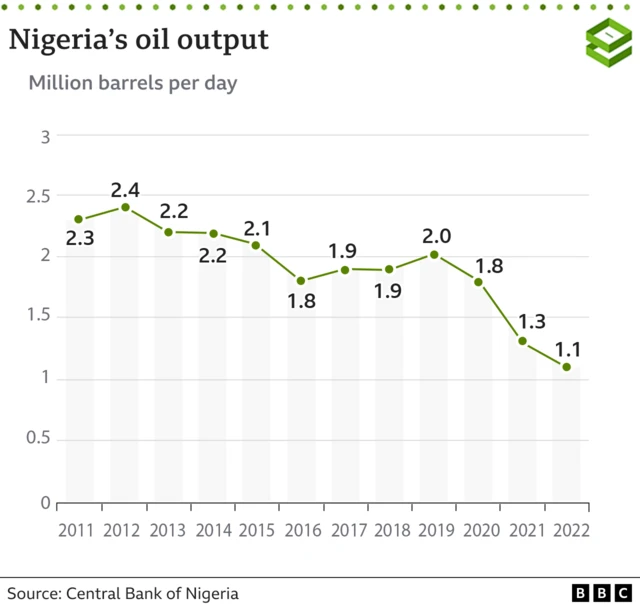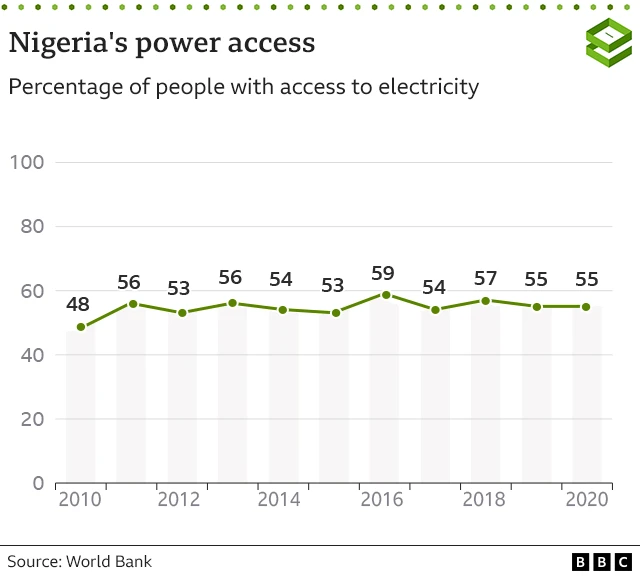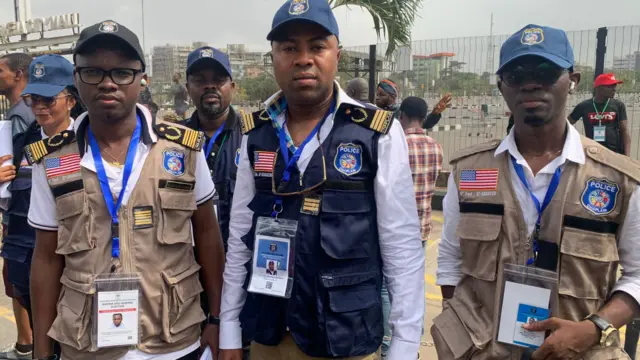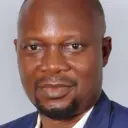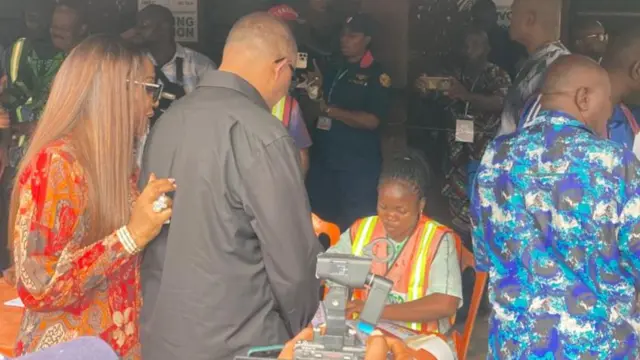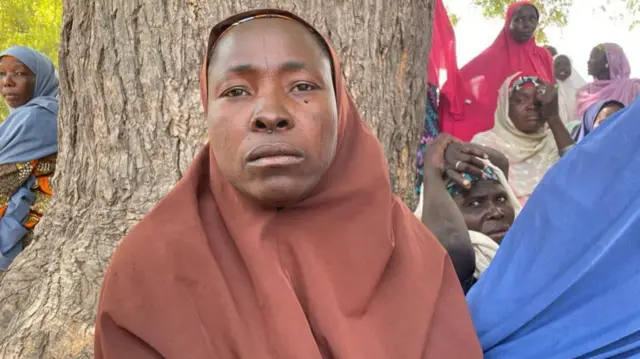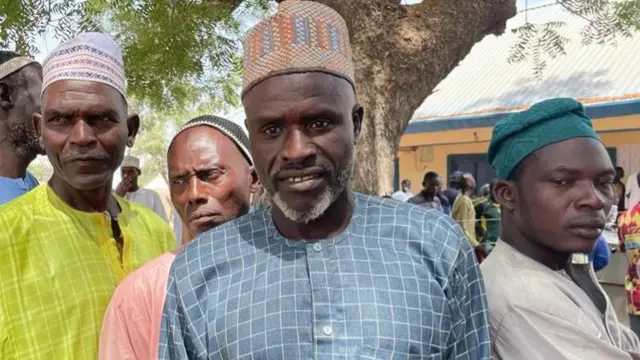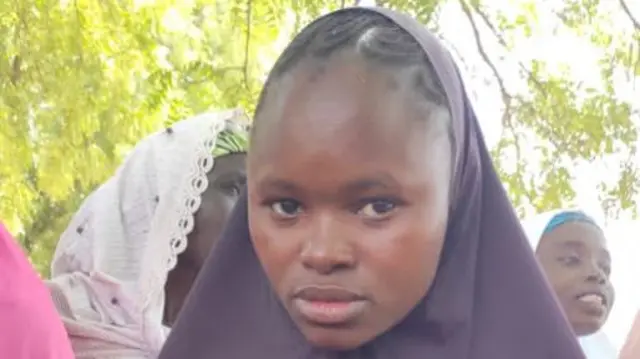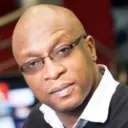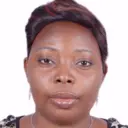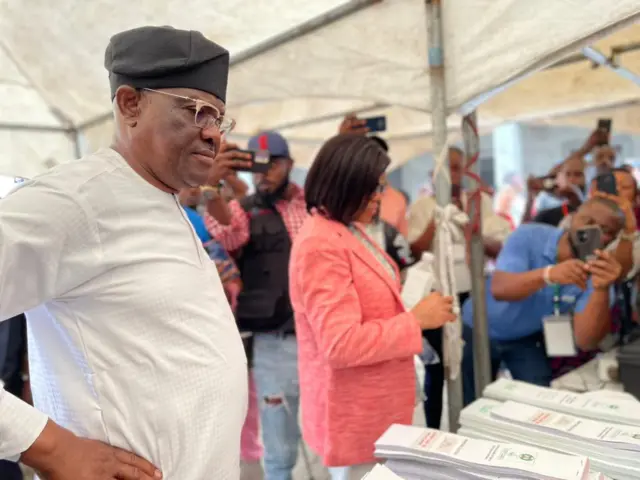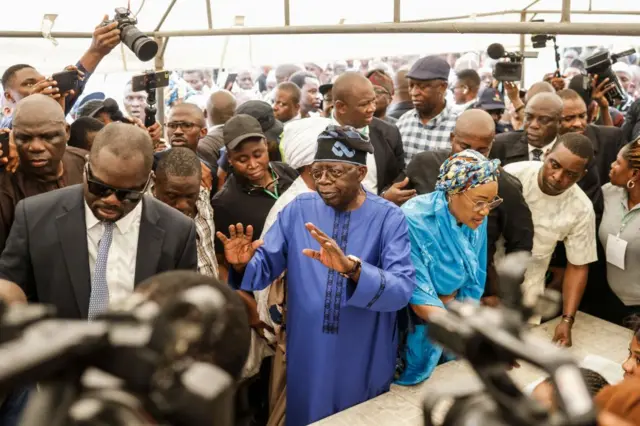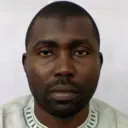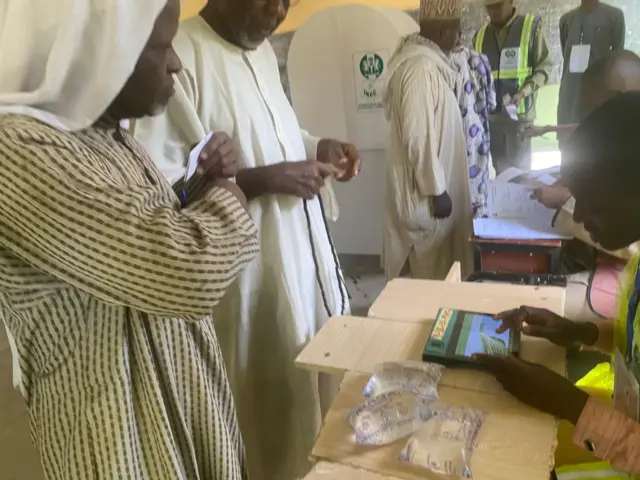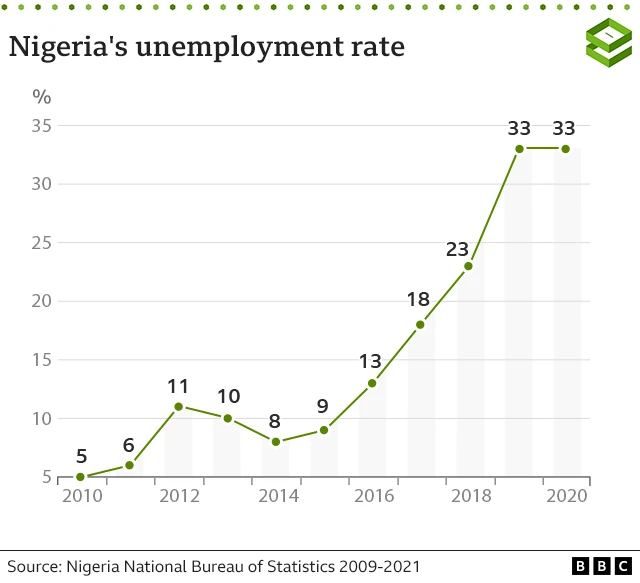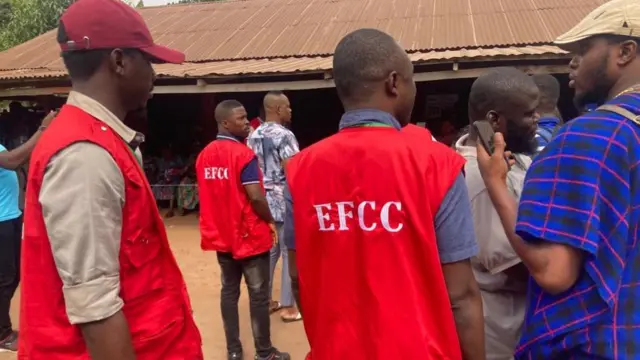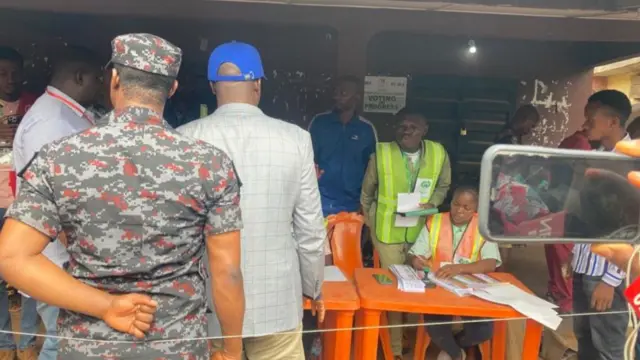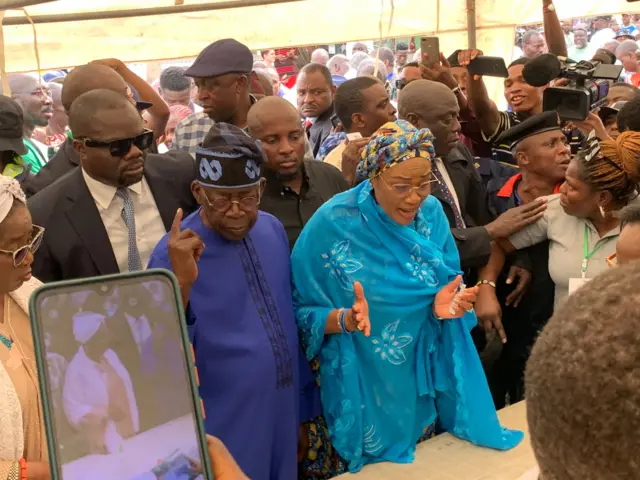Electoral boss apologises for voting delayspublished at 13:19 GMT 25 February 2023
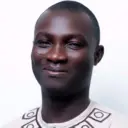 Joshua Ajayi
Joshua Ajayi
BBC News, Abuja
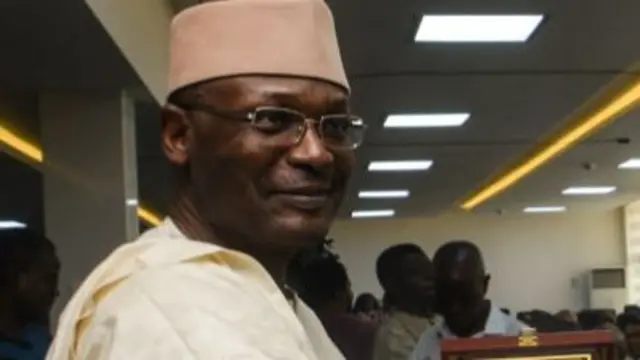 Image source, Getty Images
Image source, Getty ImagesMahmood Yakubu promised to give regular updates
Nigeria's electoral chief has apologised for delays being experienced by voters in some parts of the country.
Mahmood Yakubu briefed the press at the central collation centre in the capital, Abuja, after widespread reports of late arrival of voting materials and electoral officers in some states.
The head of the Independent National Electoral Commission (Inec) said some delays were due to advice given by the security agencies for the safety of personnel and materials.
He said armed men had attacked some polling units in the southern state of Delta, where at least two voter card verification machines were carted away.
Mr Yakubu said the stolen items were subsequently replaced and security boosted to allow voting to take place.
In the northern state of Katsina, suspected criminal gangs had attacked a voting location, snatching at least six of the voter card checking devices, known as Bvas. Three of them were recovered and the others had been replaced, the Inec boss said.
In the north-eastern state of Borno, where an Islamist insurgency has been waging for more than a decade, Mr Yakubu confirmed that insurgents had opened fire on the electoral officers from a mountain top in the Gwoza area.
Some electoral officers were reported to be injured in the shooting, he said.
The electoral commission would continue to review the situation and provide regular updates, he concluded.
